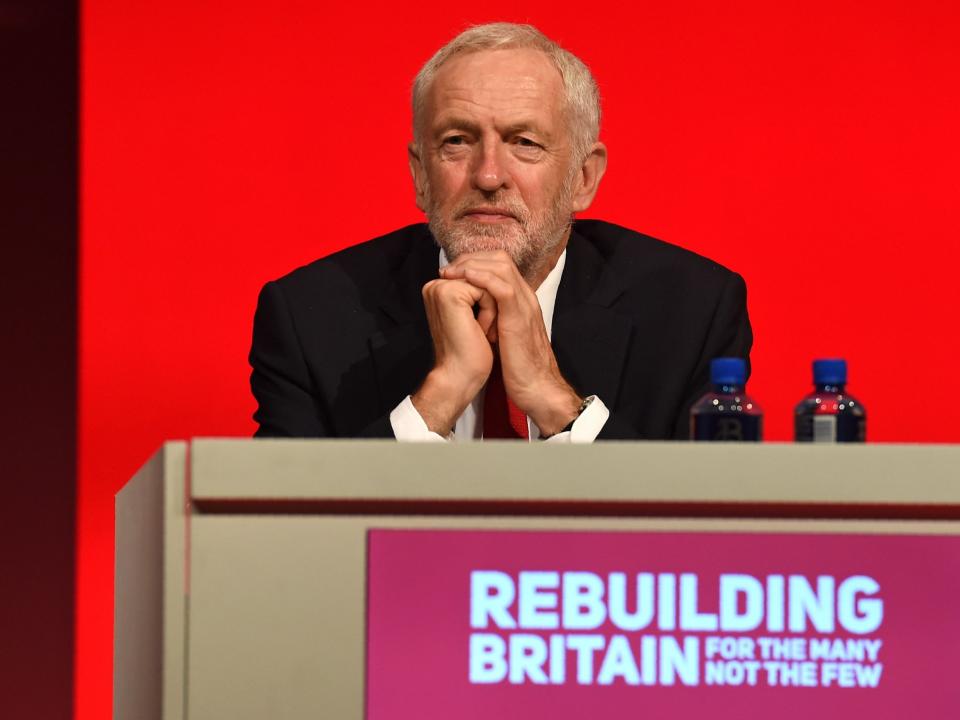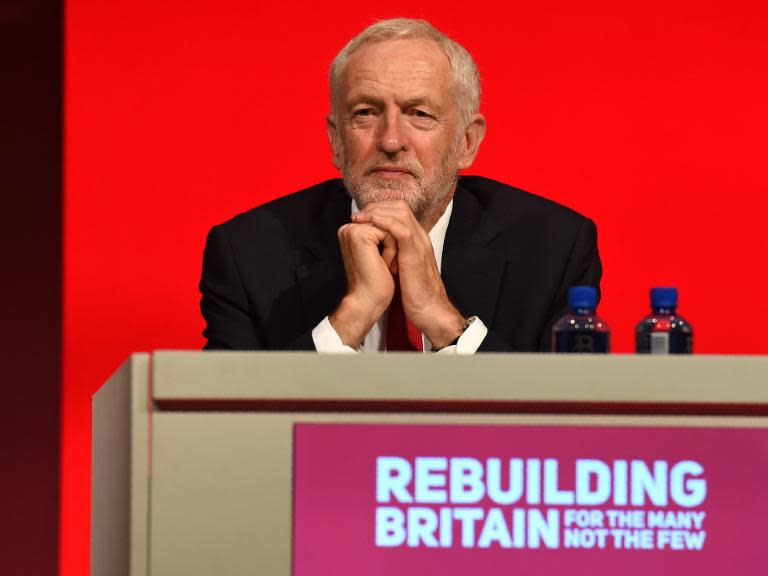The solution to the nightmare of Brexit lies with Corbyn – but a snap election might not be the right remedy
As the radioactive dust settles on Salzburg, and the strains of the EU Philharmonic’s stirring recital of “Requiem For Chequers” fade away, domestic thoughts turn to a general election.
Members of Theresa May’s inner circle of “strategists”, as the Sunday Times generously dignifies them, have begun planning a jaunt to the booths in November.
This brainwave is inspired, the paper reports, “by the latest polling, which indicates a slump in support for Jeremy Corbyn among those who voted Labour” last time.
This particular brand of opinion poll-related Tory opportunism rings a bell, but it’s far too faint to identify the precedent.
More overtly keen on an autumnal election is Corbyn himself. It’s almost as if his memory, being better than mine, makes him think he’d do better than the polls might suggest.
And so on Tuesday, when Labour’s conference supposedly votes on a second referendum, it probably won’t.
The motion is expected to be one of those hybrids known as a “composite”. Nostalgists will recall a time when the word rang out from conference platforms with the regularity of Big Ben chiming the quarter hour. As Alexei Sayle records in his masterly childhood memoir, Stalin Ate My Homework, composites were generally gibberish bearing little relationship, if any, to the real world outside the hall. This one will be different.
This is not to say that Corbyn and his team aren’t willing to ignore the members so far as they can. The motion is unlikely to be a demand that the people are given the chance to get us out of this mess. “I’m not calling for a second referendum,” Corbyn tells the Sunday Mirror.
Instead, it is predicted to be a fudge designed to preserve the possibility in the aspic of vagueness, and citing a general election as the ideal way to end this impasse.
The tiny problem with that – and it’s almost too trivial to be worth typing – is this. How can anyone be confident that this election would be more conclusive than the last, when all current polling has the two parties tied within the margin of error?
What happens if the result is another desperately fragile minority government with no prospect of getting any Brexit through the Commons? Another month will have been wasted on partisan screeching, the deadline will be another month closer, and the quicksand will be deeper even than now.
There is another minor problem. General elections are never about one thing, even when that thing is as monumental as Brexit. Many millions of votes would be steered by it, of course.
But millions more would be guided (utterly meaningless though any manifesto pledge would be in this miasma of confusion) by tax proposals, housing and social care policy, NHS funding, and a host of other issues. Even a decisive result couldn’t possibly be taken as proof of the public will on Brexit.
If you want to decide a single issue with a plebiscite, you have a single-issue plebiscite. Holding a general election as a proxy has every chance of deepening an existential crisis in no urgent need of entrenchment.
If the PM is relieved by the reaction to Friday’s statement, the instant gratification of a reactionary press hooked on denunciations of EU knavish tricks since Thatcher won’t last longer than Jacob Rees-Mogg’s delight in her tone. “Boadicea,” writes Moggy, “would have been impressed by Theresa May”.
However, cheering the approval of a Celtic tribal queen who fought horrid Europeans almost two millennia ago, Boadicea’s uprising was crushed. Rather than getting her strategists to war-game a snap election for the Iceni parliament, she promptly departed the scene, probably by poisoning herself.
May has other plans. How firm they are, about an election or anything else intended to let her cling on, is hard to say. But she gives the impression that she is stumbling blindly about in the fog of war, clinging to the corpse of her dearest friend like Forrest Gump holding Bubba back in ’Nam.
Now that May’s dream of putting all this hell behind her and joining Chequers in the shrimping business is lost, it seems more than ever that if there is a solution to this nightmare, it lies not with her, but with Corbyn.
Whether through an underestimated gift for patient strategising, or his more widely recognised talent for dithering, or simply his refusal to abandon his preference for leaving, he has held his fire for more than two years.
He has ignored both mounting pressure from Keir Starmer and the bulk of his front and back benches, and the craving to have their futures rescued from the fans who chant his name to “Seven Nation Army”.
But there comes a time in the life of a political general when any form of resistance against a 27 nation army is too blatantly suicidal to be indulged.
That moment would appear to be now. The polling which points to growing disenchantment among his own base, and to substantial Labour gains if he promised one, may be unreliable. But there is no doubting that a huge majority of Labour members, possibly as high as 80 percent, want that second referendum.
Corbyn’s often stated commitment to the primacy of party democracy is about to face its definitive test. Does he honestly believe that the membership’s collective will is supreme? Or is he parroting his version of the ultras’ hypocrisy about restoring parliamentary supremacy? The answer to that may pivot the future of us all.

 Yahoo News
Yahoo News 

